IELTS Collocation
What is collocation?
This refers to words (often two or three) that are commonly placed together.
There may be grammatical reasons for this, but there may not be. It may be that through long-term usage, it just sounds correct.
It is one of the most important things to understand and practice when you learn the English language.
Here is an example of some common verb-noun combinations to illustrate:
To make the bed / money / a noise
To catch a cold / a bus / a fish
To come late / on time / to a decision
To do homework / the shopping / nothing
You can’t say ‘do the bed‘ as these words do not collocate together.
Why are they important for IELTS?
The examiner will be judging you on this. For example, here is what the IELTS public band descriptors say for an IELTS band 7 for lexis (vocabulary):
“uses less common lexical items with some awareness of style and collocation“
So to achieve a band 7 in this criteria, not only do you need to be using some less common words, you also need to show to some extent that you know what other words these less common words are usually used with.
However, this is important for any band – if you have a bad grasp of them, this will have a negative impact on your writing and your speaking.
How do I learn them?
They are not something you can really sit down and say, “Ok, I’m going to learn collocations today”.
The important thing is that when you learn a new word, you learn what words are commonly used in combination with it. This is a common approach in English language course books.
To take a simple example, let’s say you are fairly new to English and you are learning the word ‘to have‘. You may be presented with these phrases in your coursebook to help you learn the word:
have lunch
have a bath
have a rest
have a meeting
have a haircut
have a drink
have a good time
have a relationship
have a holiday
have sympathy
have a problem
So you are not just learning the word ‘have‘, you are learning chunks of language. You are also learning words that are usually used with the word ‘have‘.
Learning words this way is much more effective than learning words in isolation. If you learn words on their own, you are sure to make mistakes when you try to use them in sentences.
Here are some more complex examples using the word ‘interest‘ to show you the types of collocation you may find for a word:
Grammar |
Some Examples |
Example Sentences |
| adjective + interest | considerable interest deep interest great interest historical interest long-term interest musical interest vested interest financial interest business interest |
He has a vested interest in the future of the business.
I have varied musical interests – I like jazz, pop, classical and reggae. |
| adverb + interest | greatly interested deeply interested particularly interested really interested very interested quite interested |
He is deeply interested in religion.
I’m very interested in studying abroad. |
| noun + interest | interest rate interest payment interest charge interest group |
There are political interest groups in my country that want to change the constitution. |
| preposition + interest | out of interest for interest of interest |
I had never heard of the film before but I went to see it out of interest. |
| interest + preposition | interest among interest from interest in |
His speech generated interest from many people. |
| verb + interest | take an interest have an interest show an interest lose interest attract interest generate interest spark interest be of interest maintain interest share an interest pay interest |
I started learning to play the guitar but I lost interest very quickly.
My friends and I share many interests so we get along very well. |
So as you can see, there are many words that are commonly used with ‘interest‘ in different contexts. If you start to use the wrong words with it, this will be very noticeable.
If you say this, for example, it will be very obvious to the examiner that it is wrong:
I’m completely interested on modern art.
‘completely‘ does not collocate with ‘interest‘ in this sentence, and nor does ‘on‘. It could instead be said like this:
I’m particularly interested in modern art.
Someone using sentences like this (consistently of course) would achieve a high band score for their lexis because they are demonstrating a good understanding of which words should go together.
Another way to improve your knowledge of what words collocate is reading. The more you read, the more you will notice which words commonly go together.

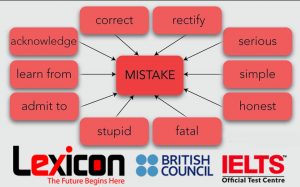
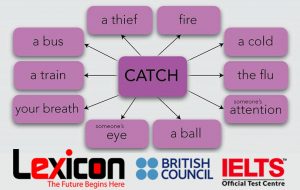
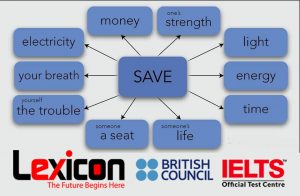
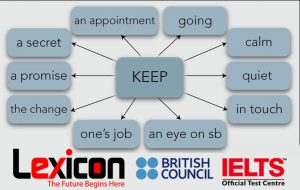





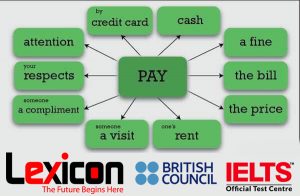

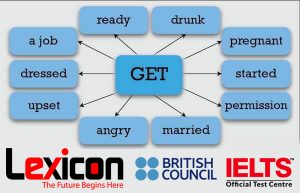
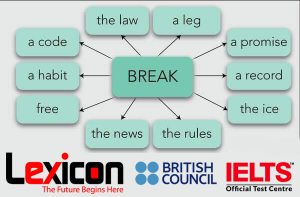
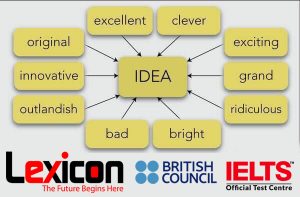
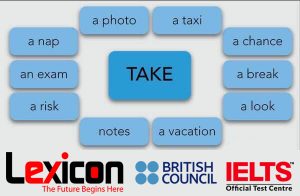

Thanks for posting this. Was looking for this info all over the web.
I will surely foreward this post to all of my pals! Its very excellent and a very high-quality read!